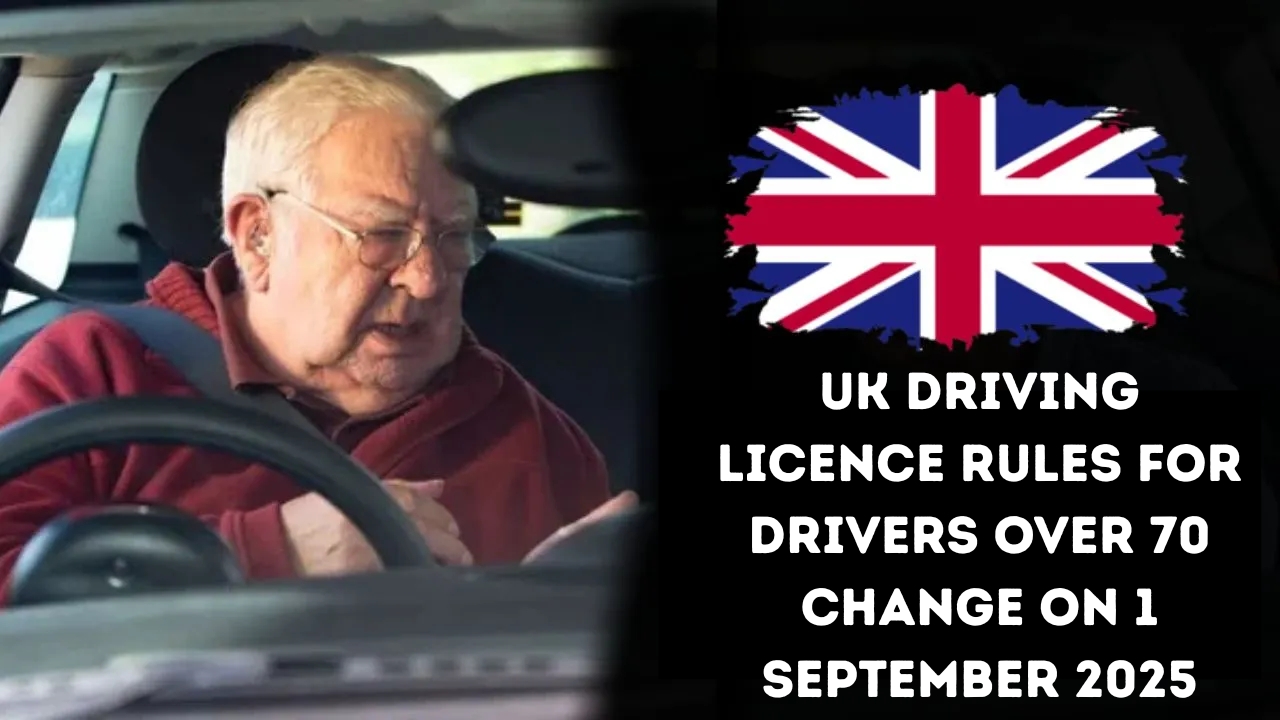As of September 1, 2025, the Government of the United Kingdom will change the rules of the driving license of the people aged 70 and over. This will be part of a road safety strategy which aims at improving the safety of older drivers, and the vulnerable road users. Perhaps the most notable change is the self-declaration system where licenced drivers will be required to take a vision test in every three years.
License holders aged 70 and over will be required to carry the approved eyesight test certificates, failing to which, will attract a driving ban. This policy is designed to target the road safety issues which arise from having a medical status of ‘blindness’ which a particular coroner has characterized as the ‘laxest in Europe’, which the Government is aiming at to be the safety priority.
Renewal Steps and Timeframe
In 2020, drivers started getting a reminder letter from the Driver and Vehicle Licensing Agency (DVLA) 90 days before their license expiration date. Renewal can be carried out in hardcopy or digitally, with positive outcomes online usually taking 1 week to complete. After age 70, the license must be renewed every 3 years in order to be able to legally drive in the UK.
Eligibility and Health Declation
Along with the eyesight exam, during renewal drivers must also meet some health criteria. Medical self-declaration concerning a condition that may disqualify a person from the driving a vehicle is a requirement. Waiting or failing the verification process is there, eyesight and health not being criteria to be met, which brings the individual driving legally with multiple consequences like fines and suspension of driving license.
What Changes For Other Categories
After the age of 70, during the renewal process, not to separately apply with some other additional medical clearance, drivers lose some vehicle category entitlements like minibuses. For instance, renewing a C1 or D1 category license is more complex and includes additional forms and medical evaluations.
Government’s Road Safety Strategy Context
This portion, together with the strengthening of penalties for driving while intoxicated, under the influences of drugs, or without insurance, and the stricter enforcement of forgetting seatbelts, is part of a more comprehensive revision of road safety which, along with the rest of the strategy, is set to roll out in the autumn of 2025. The government is keen to emphasize that the aim of these provisions is to prevent deaths and serious injuries caused by road traffic collisions, which instigate massive drains of funds within the National Health Service.
What Senior Drivers Need to Know
Those 70 years and beyond will need to take the forthcoming regulations seriously and can take the steps of pre-licence renewal, and eyesight tests, strategy to ease rule with applicable road safety regulations. The government website is the quickest for renewal purposes or driving documents, however, documents sent through the mail are also accepted. Drivers should also conduct a self health analysis to actively monitor and reform habits that may otherwise lead to losing the ability to drive. Older people, along with their family and carers, are especially encouraged to take greater responsibility for their safety as well as for the safety of others during the Covid 19 pandemic.



